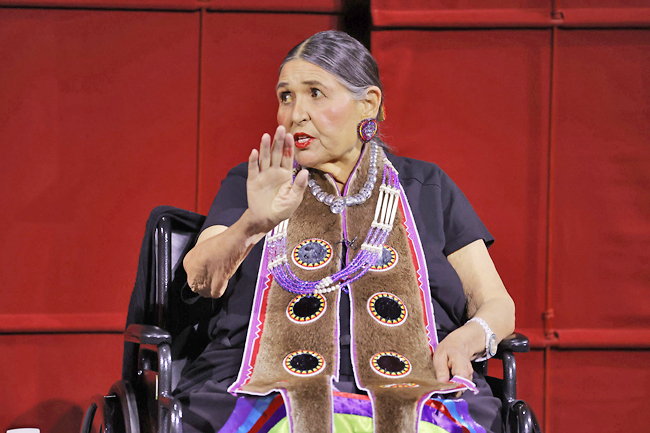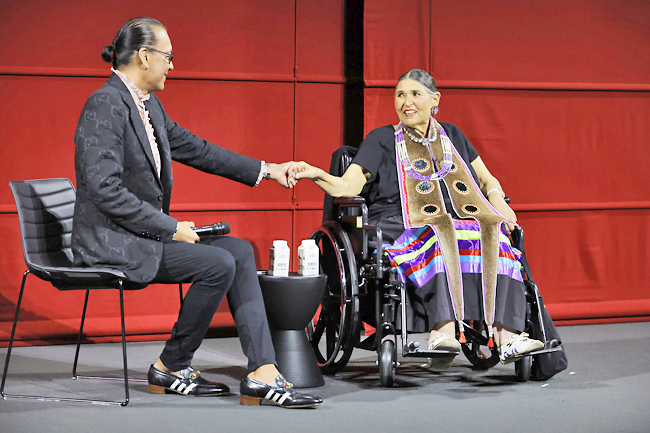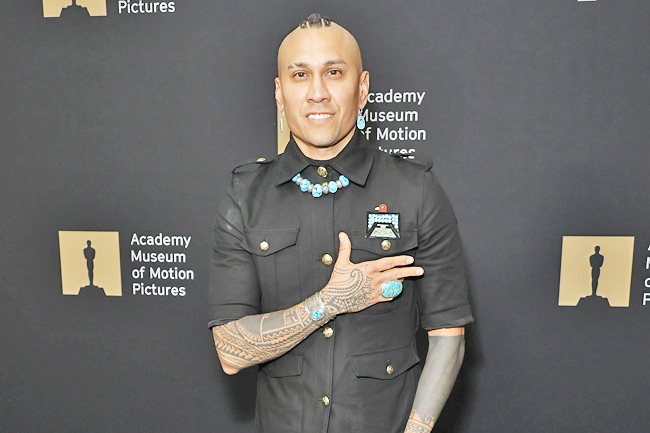AFP – Almost five decades after she refused an Oscar on behalf of Marlon Brando over the treatment of Native Americans by the United States (US) film industry, Sacheen Littlefeather (AFP; pic below) was honoured by the Academy of Motion Picture Arts and Sciences.
In a moving ceremony in Los Angeles filled with singing and dancing, the Academy publicly apologised to Littlefeather, who was feted by activists in the wake of her protest, but blackballed by the movie world.
Littlefeather, who is Apache and Yaqui, was booed at the 1973 Academy Awards – the first to be broadcast live around the world – while explaining on Brando’s behalf why he would not accept his best actor Oscar for The Godfather.
On Saturday she told a packed audience at the Academy’s newly-opened museum how she had arrived at the ceremony just minutes before she took the stage because Brando had taken so long writing his non-acceptance speech.
“I went up there, like a proud Indian woman with dignity, with courage, with grace, and with humility,” she said. “I knew that I had to speak the truth. Some people may accept it. And some people may not.”



She was greeted on stage by Norwegian actress Liv Ullmann and James Bond star Roger Moore, who proffered the statuette she refused to accept.
Under strict instructions from Academy managers not to give an acceptance speech longer than 60 seconds, she delivered instead a dignified impromptu address.
“I said okay, and I had made this promise to Marlon (Brando) not to touch the Oscar. And so I wasn’t under any pressure that night,” Littlefeather quipped. She said veteran Western star John Wayne had to be restrained from physically assaulting her as she left the stage.
Littlefeather, a member of the Screen Actors’ Guild, subsequently found it difficult to get work in Hollywood, with casting directors warned not to employ her.
Former Academy president David Rubin, who penned the apology earlier this year, took to the stage to read his words, which invoked “the emotional burden” Littlefeather bore and “the cost to your own career”.
“For too long the courage you showed has been unacknowledged. For this, we offer both our deepest apologies and our sincere admiration.” Rubin’s apology comes as the movie industry reckons with what many view as a culture of sexism, racism and impunity.
“The academy and our industry finds itself at an inflection point,” Rubin said on Saturday.
“We are actively examining our past and focussing on how best we can facilitate healing.”
The museum, which opened last September, has pledged to confront the Oscars’ “problematic history” including racism. One display already tackles the harassment of Littlefeather.
The Academy has also moved to confront accusations of a lack of racial diversity in recent years.
In 2019, Last of the Mohicans star Wes Studi became the first Native American actor to receive an Oscar, with an honourary Academy Award recognising his career. Its museum has also previously hosted events on women who achieved historic Oscars milestones including a talk with Buffy Sainte-Marie – the first Indigenous person to win an Oscar, for best original song in 1983.
Asked by reporters ahead of the ceremony how she felt about having to wait so long to hear “sorry”, Littlefeather was philosophical. “It’s never too late for an apology. It’s never too late for forgiveness.”


